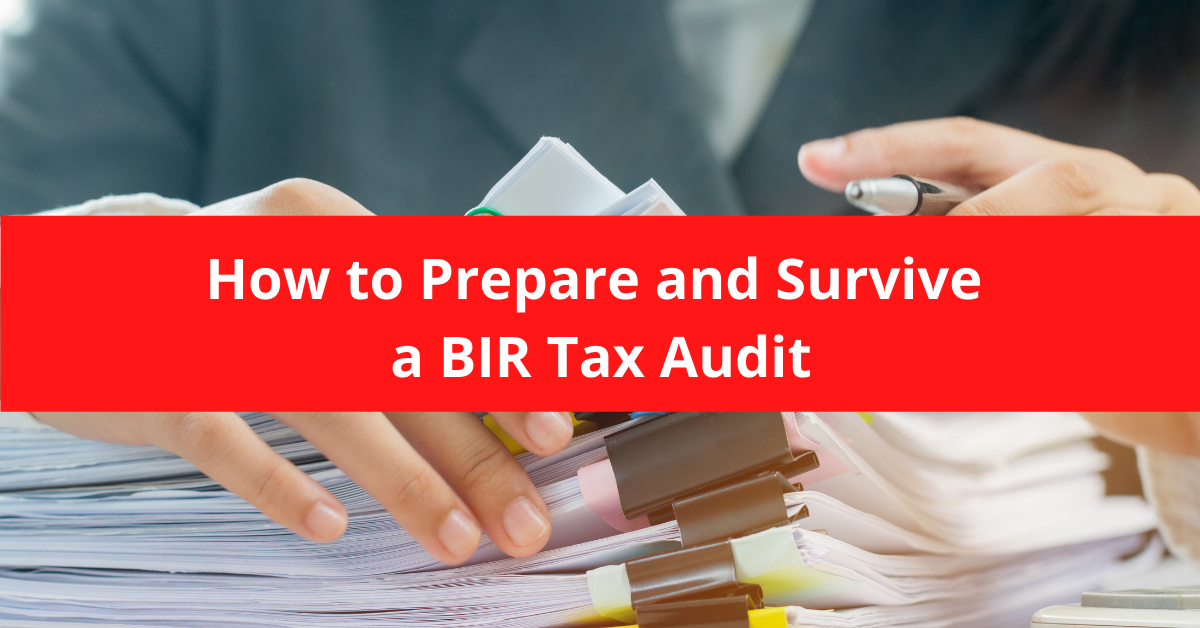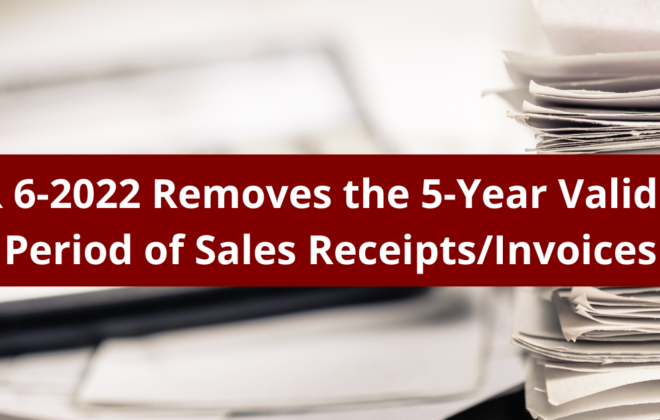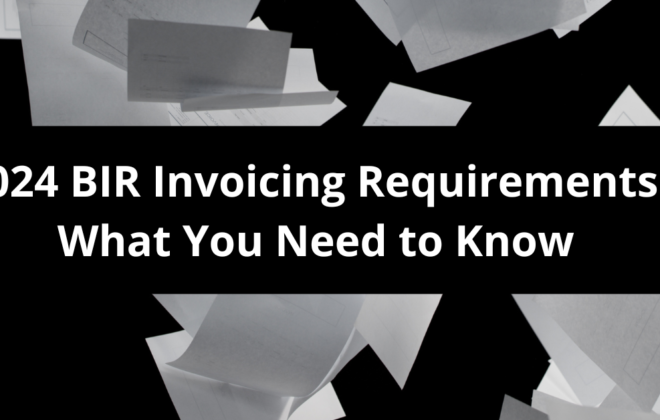How to Prepare and Survive BIR Tax Audit
Most taxpayers react with apprehension when receiving a BIR Assessment Letter or specifically a Letter of Authority (LOA) as this signals the start of a BIR audit. In most cases, this also means that the taxpayer may need to dispute the audit findings or pay the tax discrepancy. No wonder many taxpayers become stressed out when this happens.
However, you don’t really need to worry. By knowing and understanding the three stages of the BIR audit, it will help you prepare and avoid unnecessary stress.
Three Stages of BIR Audit
Our tax system operates on a voluntary compliance method. As a check-and-balance mechanism, the BIR performs a tax audit and Assessment to check if the taxpayers paid the correct taxes.
All valid tax examinations and assessments should comply with the following stages:
1. Authority
Section 6 of the Tax Code provides the power of the BIR Commissioner or his duly authorized representative to examine any taxpayer and assess the correct amount of tax.
Letter of Authority (LOA)
The Tax Code requires the Commissioner or its authorized representatives to issue an LOA if it delegates the examination of a taxpayer.
Before any tax examination begins, the BIR officer assigned to conduct the investigation should present a Letter of Authority (LOA) indicating the name, TIN, and address of the auditee. It will also show the tax type and the taxable year to be examined.
should be served and received by the taxpayer or its duly authorized representative within one month or 30 days from the date of the letter.
Authorized Representatives
Under Revenue Memorandum Order (RMO) No. 44-2010, the following authorized representatives are allowed to sign the Electronic Letter of Authority (eLA).

2. Audit
All taxpayers are possible candidates for audit. The Commissioner or its authorized representative should issue an eLA to cover such examination if he wants to delegate this function. (RMO 19-2015).
During the audit examination, the taxpayer should only submit the documents that are enumerated on the eLA. Otherwise, you are exposing yourself to undue audit findings, which may cause you additional fines and penalties.
Mandatory cases that would warrant an investigation include a request for tax refund or tax clearance, among others. Further, the prioritization of taxpayers for examination is based on the criteria as enumerated in RMO 19-2015.
3. Assessment
The Assessment is the last stage of the BIR audit. Four Assessment Notices are issued by the BIR Commissioner or its duly authorized representatives as indicated in RMC 11-2014.
Preliminary Assessment Notice (PAN)
The PAN contains the findings of the audit and the proposed Assessment. The taxpayer can reply in writing within 15 days from receipt of the notice if he disagrees with the results.
Final Assessment Notice (FAN) and Formal Letter of Demand (FAN-FLD)
After evaluating the taxpayer’s reply to PAN and within 15 days from receipt of the taxpayer’s letter, BIR issues the FAN and FLD, requesting the taxpayer to pay the deficiency taxes.
However, the taxpayer is given 30 days from receipt of the FAN-FLD to submit a protest letter requesting reconsideration or reinvestigation.
Final Decision on Disputed Assessment (FDDA)
The protest letter is then assessed and evaluated for the BIR to decide on the matter.
The FDDA is the final ruling of the BIR Commissioner or its duly authorized representative. The final judgment should indicate the facts, the pertinent laws applied, the rules and regulations, including jurisprudence on which the final decision is based.
There is nothing to be afraid of when we are subjected to tax examinations. All you need to have is a decent working knowledge in dealing with BIR personnel and protecting our rights as a taxpayer.
If we are tax-compliant in terms of maintaining and updating our books of accounts, and filing the tax returns, and paying them correctly, then the entire process is just a formality.
—————————-
Do you need help with your tax compliance? We’d be happy to assist you. Email us at info@djkaaccounting.com for inquiries.
Recent Posts
- New Features and Functionalities of the Online Registration and Update System (ORUS)
- A Comprehensive Guide to Taxation for Freelancers in the Philippines
- New Tax Laws in 2024: What Changes Filipino Taxpayers Should Prepare For
- How to Avoid Common Tax Mistakes in 2024
- Tax Deductions and Benefits Often Overlooked by Filipino Taxpayers





